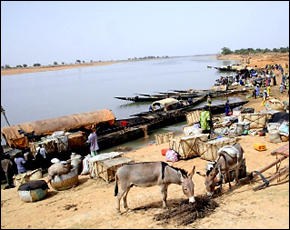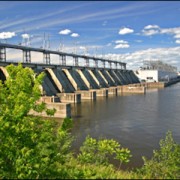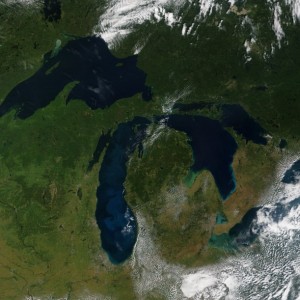Displaced Zimbabwean Farmers Set Down Roots in Nigeria
 Importing technical knowledge from Zimbabwean migrants is part of the Nigerian government’s plan to increase food self-sufficiency.
Importing technical knowledge from Zimbabwean migrants is part of the Nigerian government’s plan to increase food self-sufficiency.
The Nigerian government is inviting foreign farmers and giving them 1,000 hectares of land with 25-year leases in the agricultural hub of Shonga in order to improve food production, Reuters reports.
Many of the farmers originally hail from Zimbabwe. They were kicked off their farms when President Robert Mugabe ordered land to be taken from white owners to redress colonial era seizures. The country has been in violent turmoil since its March 2008 elections.
Seventy percent of commercial farms in Zimbabwe used to be owned by white farmers, but now black Zimbabweans control 90 percent, according to Reuters.
The Nigerian government hopes to spread the foreign farmers’ technical knowledge to local farmers and generate rural employment. More than 3,000 local people are working on one of the 13 commercial farmers established in Shonga, according to Reuters.
The land in Nigeria is ideal for farming, said one of the displaced farmers.
“The Niger River is just behind me, I can see it in the distance there,” said Irvine Reid to Voice of America in 2008. “That is an endless source of water and that is why the farms are positioned here. That is why we came to this site.”
Land seizures have not helped farming in Zimbabwe. Agricultural output has declined since the end of the colonial era. Cereal production dropped four percent from 1981 to 2001, according to the World Resources Institute. At the same time, cereal output in the rest of sub-Saharan Africa has increased by 54 percent.
Zimbabwe has also had to deal with a cholera outbreak in the last year. Swarthmore history professor Timothy Burke told Circle of Blue in January 2009 that the Zimbabwean government has been a poor steward of its water management infrastructure.
“One of the common misperceptions of the crisis in Zimbabwe is that it began suddenly with the seizure of white farms in the late 1990s,” Burke said. “The roots lie deeper, arguably almost to the beginning of the postcolonial era in the early 1980s. At the very least, by the early 1990s, the government was already beginning a process of hollowing out key government departments, using them largely as a dumping ground for patronage jobs while paying little heed to the need to deliver effective services to the public.”
Recently Zimbabwe has been investing in irrigation infrastructure and aid for its farmers. The country plans to increase its irrigated capacity threefold and continue to provide subsidized farm inputs under its farm mechanization program, President Mugabe said during the World Summit on Food Security this week.
Source: Reuters, Voice of America
Read more from Circle of Blue about Zimbabwe’s cholera epidemic
Brett writes about agriculture, energy, infrastructure, and the politics and economics of water in the United States. He also writes the Federal Water Tap, Circle of Blue’s weekly digest of U.S. government water news. He is the winner of two Society of Environmental Journalists reporting awards, one of the top honors in American environmental journalism: first place for explanatory reporting for a series on septic system pollution in the United States(2016) and third place for beat reporting in a small market (2014). He received the Sierra Club’s Distinguished Service Award in 2018. Brett lives in Seattle, where he hikes the mountains and bakes pies. Contact Brett Walton







I’m in need of zim cattle breeders who establisch in Nigeria.
I want to import cattle livestoch from them.
Warm regards